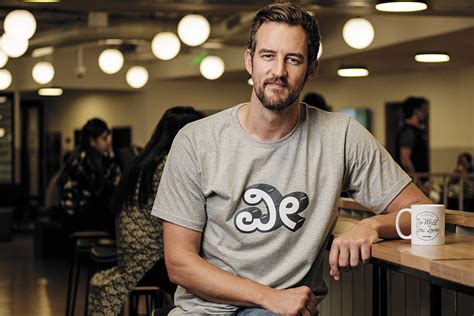A Quote by Tanya Saracho
Sometimes people of color walk into these spaces that are dominated by the dominant culture, and we have to be better, not make as much trouble.
Related Quotes
Web publishing can create common spaces; it all depends on how we, the readers and sometimes the producers, react to technological change. If we sort ourselves into narrow groups, common spaces will be in big trouble. But there's no reason not to have common spaces on the Internet. There are lots of them out there.
I was on television a couple of years ago and the reporter asked me, "How does it feel being on mainstream media? It's not often poets get on mainstream media." I said, "Well I think you're the dominant media, the dominant culture, but you're not the mainstream media. The mainstream media is still the high culture of intellectuals: writers, readers, editors, librarians, professors, artists, art critics, poets, novelists, and people who think. They are the mainstream culture, even though you may be the dominant culture."
The dominance of [an ideology] is shown by the fact that the dominated classes live their conditions of political existence through the forms of dominant political discourse: this means that often they live even their revolt against domination of the system within the frame of reference of the dominant legitimacy.
Many teachers of the Sixties generation said "We will steal your children", and they did. A significant part of America has converted to the ideas of the 1960s - hedonism, self-indulgence and consumerism. For half of all Americans today, the Woodstock culture of the Sixties is the culture they grew up with - their traditional culture. For them, Judeo-Christian culture is outside the mainstream now. The counter-culture has become the dominant culture, and the former culture a dissident culture - something that is far out, and 'extreme'.
People are sometimes having trouble deciphering what is true, and what is journalism with integrity, and what is not. It is incumbent upon us to, if anything, explain our process, and make sure that people understand the lengths that we go to bring objective truth-telling to the air, and to bring a wide variety of perspectives and the choices we make in how we cover the news. I think we could do a little bit of a better job doing that.






































